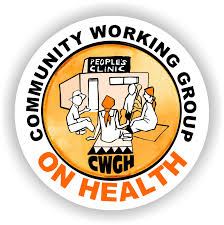The Community Working Group on Health (CWGH) has called for increased health expenditure in the 2024 national budget in tandem with the increased population and disease burden.
The group’s executive director, Itai Rusike, said that the current health financing model is unsustainable and that the government must commit to spending at least 15% of the total budget on health.
“No country can make significant progress towards universal health coverage (UHC) without relying on dominant share of public funds. Public funds are essential for UHC. The current health financing model remains unsustainable as it heavily relies on external financing as well as Out of Pocket (OOP) financing. There is a need for the government to especially increase investment in the PHC sector since it is an essential component in improving UHC and overall health outcomes,” he said.
“In line with regional and global best practices, the Government should urgently explore a number of options and strategies for innovative mobilization of resources. The key determinants of health must be addressed holistically and comprehensively to improve the conditions of health and development,” said Rusike.
Rusike also called for the establishment of a National Health Insurance scheme to improve access to quality health care for the poor and vulnerable. He said that the current system, which relies heavily on out-of-pocket payments, is unaffordable for many Zimbabweans.
In addition, Rusike called for increased investment in human resources, infrastructure development, and essential drug manufacturing.
He said that the government must address the staffing shortage in the health sector, improve health facilities at the district level, and build the capacity of local drug manufacturers to reduce reliance on imported medicines.
“Government must allocate funds towards improving basic health infrastructure in the urban, resettlement and rural areas. Priority must be on strengthening the referral, district and community health centers to promote preventive health care (as opposed to curative interventions). A significantly larger share of the budget should go to the district level,” he said.
“Currently there is a bias towards curative interventions, and this is not sustainable and must be corrected through greater investments in preventive care. Funding for mobile outreach services so that communities in remote areas and newly resettle areas can access primary health care also needs to be increased.”
The Zimbabwean government will soon begin public consultations on the 2024 national budget.

